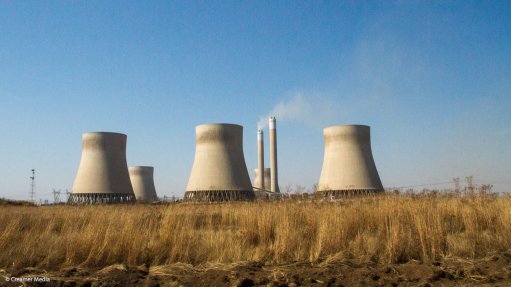
Kendal among the stations for which an exemption from the MES timeframes and limits will be sought
Photo by: Creamer Media
Having secured permission to operate five aged power stations under existing minimum emission standards (MES) plant limits until their closure in 2030, Eskom has confirmed that it will be applying for exemption from the MES timeframes and limits for four stations that will remain operational post-2030.
On May 23, the State-owned utility received confirmation from then Forestry, Fisheries and the Environment Minister Barbara Creecy that it could continue to operate Hendrina, Grootvlei, Arnot, Camden and Kriel at existing MES plant limits until March 31, 2030.
The decision followed an appeal of the National Air Quality Officer’s October 2023 MES decision, which Eskom said would lead to the shutting of 30 000 MW of capacity, as the cost of retrofitting the plants to meet air-pollution limits would be a prohibitive R300-billion.
In granting Eskom permission for the continued operation of the five stations, Creecy directed the utility to submit a detailed decommissioning plan for the plants within 12 months of the decision.
In relation to the remaining stations, Eskom was directed to submit, within 60 days of the issuance of this decision, an application for an exemption in respect of each of the facilities from the provisions of the National Environment Management: Air Quality Act.
These stations include Matla, Duvha, Tutuka, and Kendal and Eskom confirmed with Engineering News that it would be applying for exemption from the MES timeframes and limits for the four stations that would continue operating post-2030.
“Eskom will initiate the exemption application in the near future. Stakeholders will have an opportunity to provide input into the process,” Eskom told Engineering News.
Asked to comment on the cost implications of the decision, Eskom said the costs for the stations with suspension were covered within existing budget and tariff allocations, while funding for additional emission retrofits would be requested as part of standard regulatory processes.